Minesweeper War Badge, by W. Deumer (in zinc)
CATEGORY: Version
SKU: 01.GTR.0902.102.16.001
Estimated market value:
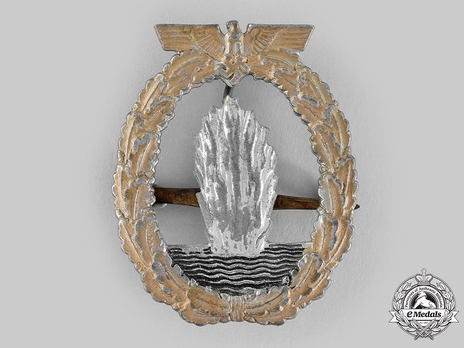
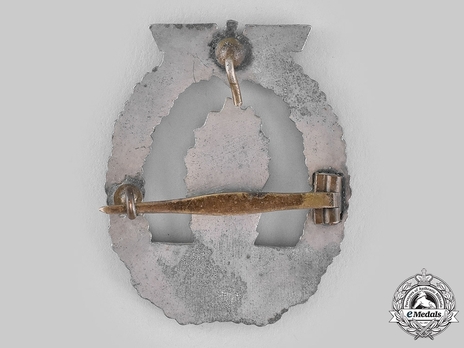
Estimated market value:
Germany, Kriegsmarine. A Minesweeper War Badge, by Wilhelm Deumer
(Kriegsabzeichen für Minensuch-, U-Boot-Jagd- und Sicherungsverbände). Constructed of gilded and silvered feinzink, the obverse consisting of an oval oak leaf wreath, joined together at the bottom by ribbon, topped by a Wehrmacht eagle clutching a mobile swastika, with a central depiction of a sea mine exploding, the reverse with a block hinge and horizontal banjo-style pinback meeting a round wire catch, unmarked but with the physical characteristics of manufacture by Wilhelm Deumer, Lüdenscheid, measuring 43.52 mm (w) x 53.95 mm (h), weighing 25.6 grams, in near extremely fine condition.
The badge was instituted by the Supreme Commander of the Kriegsmarine, Erich Raeder. Its full name is Minesweeper, Subchaser, and Escort Vessel War Badge (Kriegsabzeichen für Minensuch-, U-Boots-Jagd- und Sicherungsverbände). It was awarded to German Navy personnel protecting German-controlled coastlines performing a variety of duties.
The badge was conferred at the recommendation of the ship’s captain, and was awarded for either the successful completion of three missions, being injured during an operational mission, serving on a ship that was sunk by the enemy, completing service in a heavily mined and dangerous zone, serving on an escort mission for a minimum of 25 days, or demonstrating outstanding conduct for a minimum of six months.
The badge was designed by Otto Placzek in Berlin.
The wreath and eagle are gilded, while the explosion in the water is silvered. The waves at the bottom are often chemically darkened, as is the reverse.
Badges by Deumer are made of tombac or zinc. The tombac badges are often, but not always marked with the company’s LDO number, L/11, while the zinc badges are unmarked.
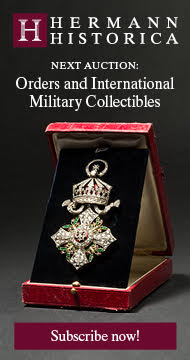
Comments
Sign in to comment and reply.
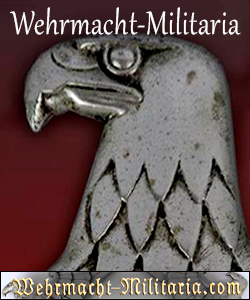
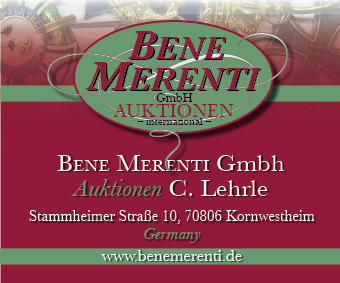
Scroll Top